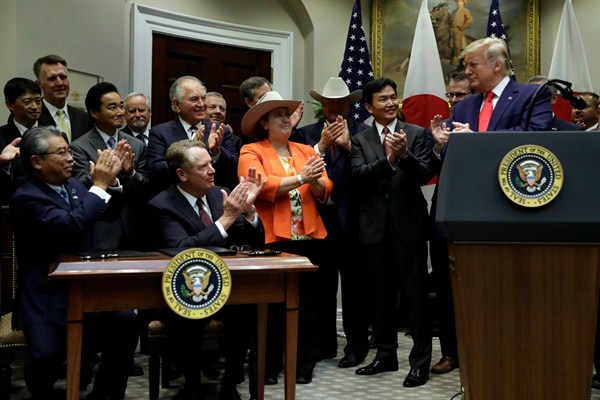President Donald Trump can point to a handful of trade deals he has concluded since coming to office. What he cannot claim, though, is that he has made things better. New agreements with Canada, Mexico and Japan do not come close to offsetting the market access that was lost when Trump withdrew from the Trans-Pacific Partnership, or TPP. Americans also continue to pay higher tariffs on hundreds of billions of dollars in imports from China, the European Union and a range other countries, while U.S. exporters are facing retaliatory tariffs in major markets.
A “phase one” agreement with China is reportedly close. Trump announced it last month from the Oval Office, calling it “the greatest and biggest deal ever,” though it still must be finalized and signed. But, like his other trade deals, it sounds like it will do little more than partially fix what Trump himself broke. As with the recent mini deal with Japan, getting something for states that voted for Trump, and for rural areas hurt by the trade war, appears to be the driving force behind this deal. Trump is boasting that China has agreed to buy $50 billion worth of soybeans, pork and other agricultural products, but China has not confirmed that figure, and many trade experts doubt it is feasible. Achieving that level of sales in a single year would require China to more than double the $20 billion in agricultural products that it imported in 2016, before the trade war began.
American farmers were doing just fine in China before the trade war. The costs inflicted on them and other American exporters and companies were supposedly justified by the goal of getting Beijing to agree to structural changes in its state-led economic model. Yet the rumored “concessions” by China to better protect intellectual property, liberalize foreign investment and open financial markets appear to be related to the implementation of laws China passed earlier this year, which the American business community regards as wholly inadequate. There are apparently no provisions to reduce subsidies for state-owned enterprises or to address other structural problems that U.S. Trade Representative Robert Lighthizer has been trying to negotiate for two years.

